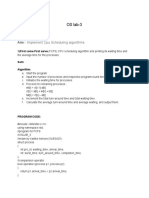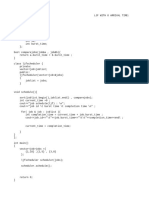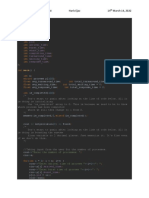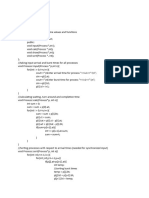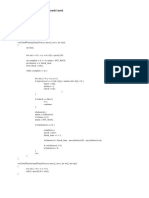0% found this document useful (0 votes)
23 views13 pagesOS Assignment
The document contains an assignment on operating systems from NIT Kurukshetra, authored by a student named Nasib. It includes implementations of various scheduling algorithms such as FCFS, SJF, Priority Scheduling, and Multi-level Queue Scheduling in C++. Each section provides code for calculating completion time, waiting time, turnaround time, and average times for processes.
Uploaded by
naseebkhan00000786Copyright
© © All Rights Reserved
We take content rights seriously. If you suspect this is your content, claim it here.
Available Formats
Download as PDF, TXT or read online on Scribd
0% found this document useful (0 votes)
23 views13 pagesOS Assignment
The document contains an assignment on operating systems from NIT Kurukshetra, authored by a student named Nasib. It includes implementations of various scheduling algorithms such as FCFS, SJF, Priority Scheduling, and Multi-level Queue Scheduling in C++. Each section provides code for calculating completion time, waiting time, turnaround time, and average times for processes.
Uploaded by
naseebkhan00000786Copyright
© © All Rights Reserved
We take content rights seriously. If you suspect this is your content, claim it here.
Available Formats
Download as PDF, TXT or read online on Scribd
/ 13






